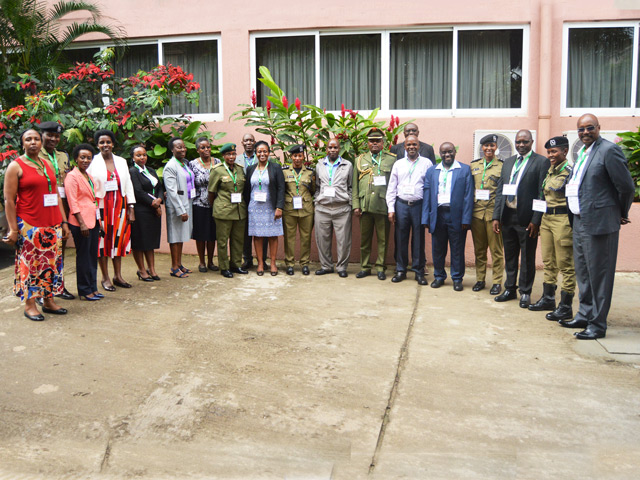
KAMPALA – Stakeholders and experts convened at Imperial Golf View Hotel, Entebbe to finalise curriculum and set-up of the Institute of Forensic Sciences and Medicine at Makerere University.
Participants at the meeting were drawn from Makerere University (College of Natural Sciences (CoNAS), College of Health Sciences (CHS), Academic Registrar’ Department), Uganda People Defence Forces (UPDF), Uganda Police, Government Analytical Laboratory (GAL), Uganda Law Society and Internal Security Organisation (ISO) and Uganda Wildlife Authority (UWA).
The Government of Uganda is working in partnership with the Government of Turkey to establish the Institute. It is envisaged that the Institute will serve as a Centre of Excellence for forensic science and medicine in academics and service in Uganda, East & Central Africa region and beyond. Makerere is collaborating with Cukurova University, Adana Turkey in this endeavour. Forensic Science is defined as ‘the application of scientific principles and techniques to matters of criminal justice especially as relating to the collection, examination, and analysis of physical evidence’.
The coordinator of the Institute, Assoc. Professor Tumps Ireeta thanked members for honouring the invitation to the workshop. He explained that ‘the idea of setting up the Institute was mooted in 2019 with a directive from President Museveni arising from the need for an Institute of Forensic Science and Medicine as a joint initiative by the CoNAS and CHS of Makerere in view of the specialities required’. In 2019, a delegation from Makerere visited Cukurova University in Turkey to benchmark work accomplished there. He further said ‘government has allocated funds to facilitate the process of developing the curriculum and plans are underway to build a state of the art facility to house the institute with the necessary equipment’.
In his remarks, the Principal – College of Natural Sciences (CoNAS) welcomed the participants to the meeting. He said, ‘it is a pleasure to work with all the institutions represented as we recognise the importance of working with all stakeholders for crime prevention and justice’. We recognise the specialities of all members involved and we hope to develop a rich curriculum at the institute from your contributions, he further noted.
Some of the resolutions from the meeting included: fast-tracking development of curriculum and set-up of the Institute of Forensic Sciences at Makerere which require approval through the University structures; design a framework to guide work at the institute in lieu of the multiple players involved; partnership with other government departments and agencies already handling forensics; the importance of practical skills in the training; finalisation of the curriculum of the programmes and cross-cutting training courses; embedding the laws that support forensics use for justice to provide contextual background for the trainees; short courses and fellowships as tracks for training at the institute among others.
A core team from CoNAS and CHS is now working to finalise the curriculum for the programmes proposed at the workshop. Three training programmes are proposed to start with: Master of Science in Forensic Chemistry & Toxicology; Master of Science in Forensic Biology & Genomics and Master of Science in Forensic Medicine.
Dr John Wasswa – Head of Chemistry Department and Chairperson of Committee working on the development of the Institute thanked members for the deliberations, contributions and guidance provided at the meeting which will guide the work ahead.
In his closing remarks, Assoc. Prof. Ireeta thanked all the participants for the time and contributions given at the workshop. He reiterated that ‘this is work we are doing for the nation thus laying a foundation for forensic sciences in Uganda’. He thanked Prof. William Bazeyo, the Deputy Vice-Chancellor – Finance & Administration for the commitment and negotiating to ensure that Makerere will host the Institute of Forensic Sciences and Medicine in Uganda.





